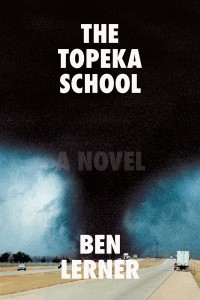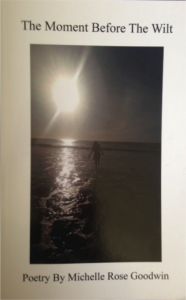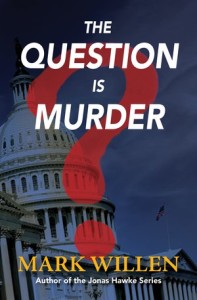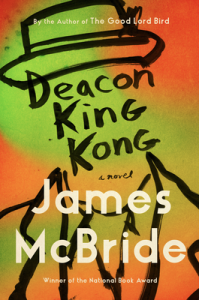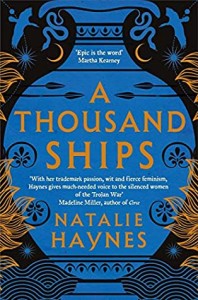This final novel in Lerner’s autofictional trilogy has been much written about and much praised. Minimally framed by his present-day adult self, the bulk of the book is Adam Gordon’s account of his teen years in Topeka, Kansas, during the 1990s. The events and circumstances mirror Lerner’s own.
A debating champion, Adam uses words aggressively and defensively both onstage and off. He’s a master of “the spread,” where debaters spout multiple arguments as fast as they can spit them out, making it difficult for their opponents to respond or, I would imagine, for the audience to follow. If this sounds a lot like mansplaining and talking over people, if it reminds you of everything hateful in our current public discourse—whether on social media, political circles, or family get-togethers—welcome to the club.
I disliked this book from the opening scene where teenaged Adam, unmoved by the romantic potential of being on a moonlit boat with his girlfriend, is so busy sharing all the marvelous wonders of his mind that he doesn’t even notice his girlfriend is no longer beside him. Some members of my book club found this sequence hilarious while I was only reminded of too many teenaged hours pretending to listen to boys orate.
Since it was our book club’s selection, I kept reading and found much that was interesting, especially about the uses and misuses of language, about language as power.
Chapters about Adam’s teen years are interrupted by a two chapters each from his parents’ point of view. Adam’s parents are members of “the Foundation,” a progressive clinic and training center for psychiatry (Lerner’ mother is connected to the Menninger Foundation). Jane, like Lerner’s mother, has written a popular feminist book, which incites anonymous calls from angry men and envy among her colleagues. Jonathan’s research involves “speech shadowing” where words repeated at increasing speeds turn into nonsense.
Adam’s chapters are also interspersed with chapters from the point of view of Darren, a townie adopted by Adam’s group of friends who mistreat and befriend him at the same time. Not gifted with the verbal fluency of the Foundation kids, Darren’s only power is physical. The threat of violence winds through these chapters, providing a bit of tension, a story question we read to answer. The other tension comes from Adam’s preparation for a debating tournament.
Our book club discussion was enlivened by one member’s actually having grown up in Topeka where her parents were associated with the Menninger Foundation. Others had a more positive reaction to the book than I did, though I recognised the critique of modern culture and the idea that much of what is so hateful today is rooted in the toxic masculinity the teens in this novel are steeped in.
Some members spoke of the blurred boundaries in the book, such as Jane having her friend become her analyst as well. Others mentioned that the characters all sound the same, except for Darren, though of course that could be because they have all been brought up in Foundation-speak. Some people thought the author was trying to put in too much, perhaps because autofiction—using real events with some fictional tampering—tempts you to include everything.
I am not a fan of autofiction. Though I appreciate the fun for the writer of playing with the boundary between fiction and nonfiction, and recognise that novelists have always drawn on their own experiences, I miss the alchemy whereby fiction transforms the dross of everyday life. Also, I’m not happy with the way lies have replaced facts in our political discourse, so blurring the line seems to me to go in a less than productive direction.
Lerner’s prose is occasionally quite beautiful. One of the benefits of novelists also being poets is increased attention to the music of language. However, I did find myself skimming sections, especially the many about debating, being bored and a little disgusted.
Writers are sometimes admonished to make their main characters more likeable, leading to debates among writers as to the necessity of having the main character be likeable (and a side discussion of whether this only happens to women writers). As a reader I don’t have to like the main character, but I have to find some common ground with them or I cannot engage with the story.
I didn’t here. My dislike of Adam only increased as I continued reading. At the same time, I appreciate the use of his specific story to shed light on much of what is wrong with our society today, at least here in the U.S.
And I’m clearly in a very small minority, as this book is both widely popular and critically acclaimed: another reminder that not every book is for every reader. It may be that I would have enjoyed it more if I were reading it 20 years from now instead of still suffering the fallout from this kind of behaviour. Still, I’m glad it being my book club’s selection pushed me to read it. I don’t have to like a book to admire it, and as a writer to learn from it.
What book of autofiction have you read? What did you think of it?
